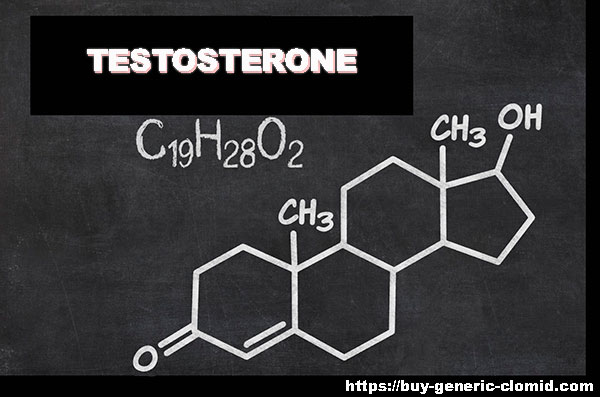The effect of testosterone – For a long time it has been considered that testosterone has an adverse effect on the likelihood of the development and course of diseases of the cardiovascular system. This point of view was based primarily on the fact that men are more likely to suffer from such diseases. In addition, it is known that estrogens, historically considered as androgen antagonists, reduce the risk of cardiovascular disorders in women. The latter, in particular, is proved by the increase in the number of such diseases after menopause.
In recent years, this position has been seriously revised. Methodically correct studies have not confirmed the relationship between the level of testosterone in the blood and cardiovascular diseases (CVD) in men. In some studies, it has even been shown that a higher concentration of the hormone can have a beneficial effect.

Treatment with testosterone preparations or taking clomid is also not accompanied by an increase in the frequency of myocardial infarctions. Angina pectoris or strokes, moreover, it is assumed that the likelihood of these complications will decrease. A number of studies have also shown that the level of testosterone in the blood of men is inversely associated with mortality from both CVD and from all causes in general.
The effect of lowering testosterone levels
The nature of the negative effect of a decrease in testosterone levels on the development of CVD has not been definitively established. Nevertheless, existing data indicate that the adverse effect of hypogonadism on the cardiovascular system can be carried out through metabolic syndrome (MS). The latter is a well-known combination of various vascular risk factors, including impaired glucose tolerance, obesity, hypertension and dyslipidemia. The risk of MS in patients with hypogonadism is significantly increased.
These data are so convincing that it has even been suggested that it is advisable to include hypogonadism among the criteria for the diagnosis of MS. At the same time, the study of issues arising after the study of these epidemiological data continues. What is the cause and what is the consequence: do MS components lead to suppression of testicular function or does hypogonadism contribute to their development? What are the mechanisms of these relationships? An unambiguous answer to these questions has not yet been received. The most likely is the existence of a bidirectional relationship between hypogonadism and MS.
The effect of testosterone on the health of men
It is also assumed that testosterone and other androgens stimulate the proliferation of endothelial cell precursors in the bone marrow, as well as their release into the bloodstream and connection with areas of endothelial defects. In young men with hypogonadism, a decrease in the concentration of endothelial cell precursors in the blood was noted. While substitution therapy led to a significant increase in these indicators. In addition, the biologically active form of testosterone — dihydrotestosterone also stimulates the proliferation of vascular endothelial cells themselves. A similar effect of dihydrotestosterone has been shown in experiments using the aorta of a bull and human vessels.
Testosterone also affects the release by endothelial cells of various para- and autocrine mediators, as well as cytokines. In particular, it has been shown that hypogonadism is accompanied by an increase in the level of endothelin-1, which has a pronounced vasoconstrictive effect. Treatment with testosterone preparations was accompanied by a decrease in the concentration of this substance. Testosterone also suppresses the synthesis of many cytokines in the endothelium, which have a negative effect on the function of these cells.
Testosterone Preparations
The testosterone preparations are also able to have a direct beneficial effect on the cardiovascular system. In particular, testosterone has been shown to cause dilation of the coronary arteries. A similar effect has been demonstrated both in experimental and clinical conditions. It is assumed that this is due to the activation of potassium channels.
The possible clinical significance of these data was demonstrated in a randomized double-blind study of the effect of testosterone. On the results of a physical activity test in men with stable angina pectoris. In the group receiving testosterone, an increase in exercise tolerance was noted, which was assessed by changes in the electrocardiogram. The degree of improvement was greater in patients who initially had more severe hormonal disorders. The existence of such an effect has been confirmed in a number of other works. Interestingly, for the first time the beneficial effect of testosterone on angina pectoris was described more than 70 years ago.